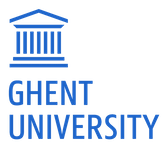


Conference
School of Entrepreneurship and Innovation, Almaty Management University
Almaty, 31 October – 2 November 2024
Academic freedom is a cornerstone of scholarly and research activities worldwide. The globalization of higher education and science necessitates a shared understanding of academic freedom principles globally, particularly in Eurasian countries. Despite the universality of academic freedom, the commitment to its protection and promotion varies and is shaped by the intricate interplay of legal, socio-political, and cultural contexts. A country’s legal regulations and policy frameworks significantly impact how the protection and promotion of academic freedom are understood and implemented.
The quality of democracy and freedom protection in a country also affects the level of academic freedom there. This effect is evident in the rapid challenges all political systems face, such as managerialism and consumerism in higher education. It is even more pronounced in undemocratic regimes with breaches of institutional autonomy and ideologization of higher education.
Equally striking is how the global academy interprets academic freedom when it encounters local traditions that are not universally democratic. In this regard, the operation of campuses of leading universities in authoritarian countries and the debates about the principles and conditions of their operation deserve additional interest.
These observable diversities raise the question of whether global academic freedom can be discussed as a universal concept and how to distinguish the diversity of academic freedom manifestations from aberrations. It also raises the question of how to protect and promote academic freedom as a principle while considering the legal, socio-economic, and cultural contexts in which it is practiced.
For a conference exploring the complexities of academic freedom in a global context, with a particular focus on Eurasian countries, here are some potential topics that could be addressed:
- The cultural and social context of academic freedom in practice, the contextualization of academic freedom, its cultural and political interpretations, and the universality of academic freedom.
- Academic freedom in democratic vs. authoritarian regimes, the balance between the social-economic dimension of academic freedom and political rights’ dimension,
- Legal framework of academic freedom, comparative analyses of legislation, the impact of legal tradition on the application of academic freedom in different countries,
- Globalization and academic freedom, including academic freedom on international campuses, academic exchange, and academic freedom strategies for maintaining academic standards and freedom in diverse political landscapes.
- Managerialism and academic freedom, balance between financial sustainability and scholarly independence. Academic integrity and academic freedom
- Effect of the social and political crises for the academic freedom, academic freedom for persecuted scholars: issues and supports of the scholars in exile
- Ethnic and moral considerations in upholding academic freedom, including ethical dilemmas scholars faced due to the conflict between national and international academic standards.
The conference is organized by CISRus (Center for Independent Social Research) with generous support of Almaty Management University (AlmaU) and in information partnership with Ghent University.
The conference will be conducted in English. We welcome applications for individual contributions, which should include the title, a brief description (up to 200 words), and a short academic biography of the presenter (approximately 100 words). Presentations will be organized in either thematic panels or roundtable discussions. The organizing committee reserves the right to determine the presentation format (panel or round table) for each selected participant.
Please send your applications to the email: freeacademia.conference@gmail.com
Application Deadline: July 31, 2024
The Conference Committee is ready to provide accommodation for all participants for the days of the conference and has some capacity to contribute to the ticket costs as well. Please indicate your need for accommodation and travel expenses with your application.
The conference committee:
Dmitry Dubrovsky (Research Scholar, Department of Social Science, Charles University; Professor, Free University)
Aleksandr Vileikis (Professor, School of entrepreneurship and innovation, AlmaU)
Elizaveta Potapova (Senior Researcher, Public Policy and Management Institute, Lithuania)
Irina Olimpieva (Director CISRus, Research Professor at the Institute for European, Russian and Eurasian Studies, George Washington University)
Registration for the conference has closed.
To register for the Zoom broadcast, please follow the link below, and feel free to share it with your colleagues. Zoom participants will only be able to listen and submit questions in writing.
About AlmaU:
Almaty Management University – is a world-class, entrepreneurial, socially responsible university. More than 35 years in the education market, the oldest private university in the country, the 1st business school of the Republic of Kazakhstan, a pioneer of business education in the CIS.
The School of Entrepreneurship and Innovation (SEI) is a leading and internationally accredited (BGA&AMBA) entrepreneurship school with a commitment to excellence, innovation, and global perspective. SEI AlmaU offers a range of cutting-edge entrepreneurship programs designed to prepare students for successful careers in diverse fields.
Information for traveling:
Kazakhstan has adopted a policy allowing dozens of countries to enter without a visa. Please contact your local Kazakhstani embassy for further details. For guests who may require a visa, AlmaU will issue a letter of invitation confirming their participation in the conference. Participants will also receive information about housing and traveling to Almaty.




0 Comments